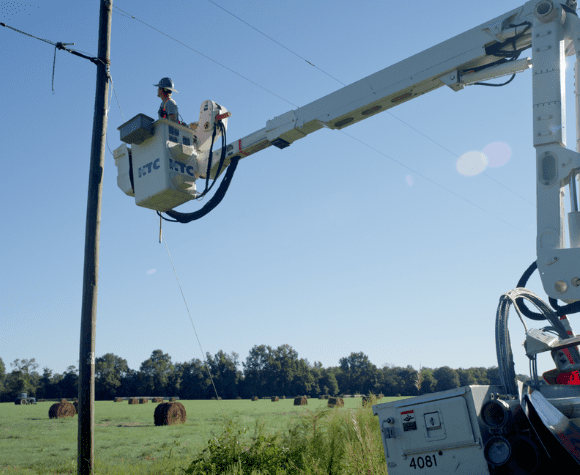Universal Service Fund – What It Is and Why It’s Important to Cooperatives
 What is the Universal Service Fund (USF for short)?
What is the Universal Service Fund (USF for short)?
The USF is a government program which is critical to getting, and keeping, rural consumers connected to high quality, affordable communication services. As for the history behind USF, prior to the Telecommunications Act of 1996, the USF operated as a mechanism interstate long distance carriers were charged to subsidize telephone service to low-income households and high-cost areas. The Communications Act of 1934 stated “all people in the United States shall have access to rapid, efficient, nationwide communications service with adequate facilities at reasonable charges.”
How has the Program Changed and Adapted over the Years?
The Telecommunications Act of 1996 expanded the traditional definition of universal service of affordable, nationwide telephone service to include among other things rural health care providers and eligible schools and libraries. Today, the Federal Communications Commission (FCC) provides universal service support through four mechanisms:
- High-Cost Support Mechanism provides support to certain qualifying telephone companies that serve high-cost areas, thereby making phone service affordable for the residents of these regions.
- Low Income Support Mechanism assists low-income customers by helping to pay for monthly telephone charges as well as connection charges to initiate telephone service.
- Rural Health Care Support Mechanism allows rural health care providers to pay rates for telecommunications services similar to those of their urban counterparts, making telehealth services affordable.
- Schools and Libraries Support Mechanism, popularly known as the “E-Rate,” provides telecommunication services (e.g., local and long-distance calling, high-speed lines), Internet access and internal connections (the equipment to deliver these services) to eligible schools and libraries.
Why is USF Support Important?
Cooperatives like HTC were founded on the belief that all Americans should have reliable, affordable access to communications services, and the USF has made this possible for more than 100 years. This holds true especially today since the federal USF helps rural consumers connect to services comparable in price and quality to those in more metropolitan and urban areas. Therefore, services are made more affordable for low-income families and there is support for critical connections supplied to schools, libraries and healthcare facilities in rural communities.
Promoting a predictable and sufficient federal USF is a priority for HTC because without USF support, it is difficult to invest in many rural areas, to sustain networks once they are built and to keep service rates affordable. For rural service providers, the USF levels the playing field for services and capabilities that otherwise areas like ours wouldn’t have received.
How has USF helped HTC Members?
The funds HTC has received through the USF have been key in building fiber and broadband solutions at a quicker pace for members. USF fees are assessed on traditional communication services for all customers throughout the United States. Those proceeds are pooled into the Universal Service Fund and then allocated back to service providers based upon cost requirements and capital investments made in rural markets. With HTC’s significant investment in fiber in its service area, we’ve experienced an increase in proceeds back from the fund, of which we’ve used to accelerate our efforts and prepare our network for enhanced reliability and future capabilities.
From the HTC perspective, there have been lots of effort, hard work and decisions, speckled with blessings, to make this all work to the advantage of the Cooperative and its members. Moving forward, we will continue to do the right thing when it comes to reinvesting for future sustainability. And by doing so, we will be better ready for the continued innovation of technology and its use of our network, even for solutions we have not yet seen but may encounter in the future.
Make sure to stay turned here to the HTC blog for future discussion about USF and what may be on the horizon regarding changes to the fund and how it could impact HTC and cooperatives like us.

 What is the Universal Service Fund (USF for short)?
What is the Universal Service Fund (USF for short)?